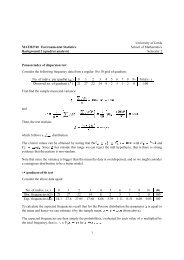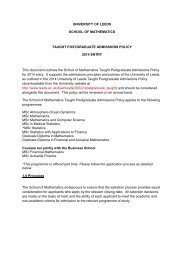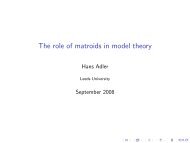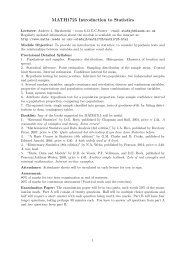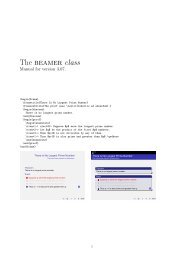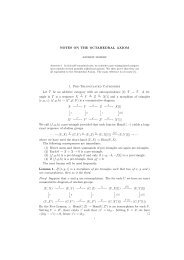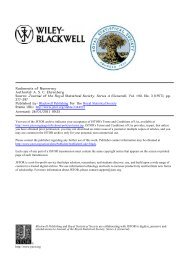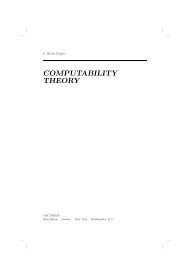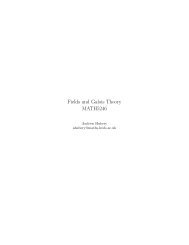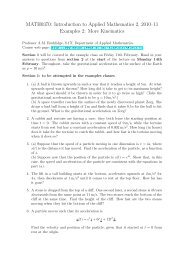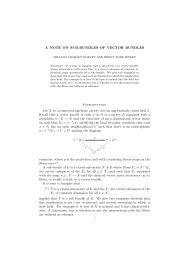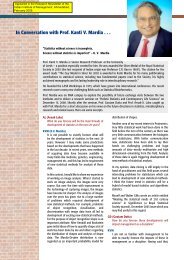Realizability for Constructive Zermelo-Fraenkel Set Theory
Realizability for Constructive Zermelo-Fraenkel Set Theory
Realizability for Constructive Zermelo-Fraenkel Set Theory
You also want an ePaper? Increase the reach of your titles
YUMPU automatically turns print PDFs into web optimized ePapers that Google loves.
impliesV(Kl) |= ∀x ∃z ∈ y ϕ → ∃z ∈ y ∀x ϕ.Now, since any two element set is subcountable, it follows from the above that V(Kl) |=UZ.Ad ECT: Assume d ⊩ ∀n ∈ ω [ψ(n) → ∃m ∈ ω ϕ(n, m)], where ψ(n) is an almostnegative arithmetic <strong>for</strong>mula. Invoking Theorem 8.7, there is a number t ψ (n) ∈ ω dependingprimitive recursively on n (and possibly further parameters of ψ), such thatV(Kl) |= ψ(n) iff t ψ ⊩ ψ(n)so that with f(n) = (λu.du)t ψ (n) we arrive atiffψ(n),∀n ∈ ω [ψ(n) → f(n) ⊩ ∃m ∈ ω ϕ(n, m)].From the latter it follows with h(n) = (f(n)) 0 and l(n) = f(n) 1 that∀n ∈ ω [ψ(n) → l(n) ⊩ ϕ(n, h(n))].Taking e to be an index <strong>for</strong> h, it is obvious that from n we can effectively construct anrealizer ρ(n) such that∀n ∈ ω [ψ(n) → ρ(n) ⊩ ∃m, p ∈ ω [T (e, n, p) ∧ U(p, m) ∧ ϕ(n, m)]].Hence, owing to Theorem 8.7, we can calculate effectively from d a realizer d ′ such thatd ′ ⊩ ∃e ∈ ω ∀n ∈ ω [ψ(n) → ρ(n) ⊩ ∃m, p ∈ ω [T (e, n, p) ∧ U(p, m) ∧ ϕ(n, m)]].✷The principles MP and IP are known to propagate from V to V(Kl). We there<strong>for</strong>eobtain the following results:Theorem: 9.3 1. (CZF + MP) V(Kl) |= MP.2. (CZF + IP) V(Kl) |= IP.Proof: See [16], chap.3, Theorem 11.3 and Theorem 11.5.✷10 Axioms of choice and V(Kl)While AC ω,ω holds in V(Kl) <strong>for</strong> free, i.e. without assuming any choice in the backgrounduniverse, validity of the following choice principles in V(Kl) seems to require theirrespective validity in V.26



